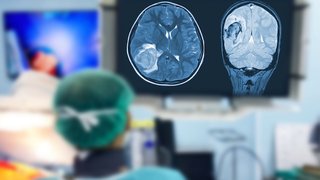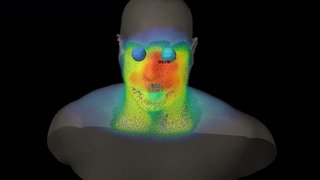5 things to know about direct-to-consumer genetic testing
June 18, 2025

Direct-to-consumer (DTC) genetic testing is in the spotlight again as giant 23andMe works through bankruptcy proceedings following a 2023 data breach. DTC genetic testing allows people to order genetic tests without a prescription or health professional’s referral. These tests, from a variety of companies, are available online or in stores and offer information about ancestry, health risks, and other genetic traits.
UT Southwestern researchers found that the popularity of genetic testing has been on the rise, with usage more than doubling in the U.S. from 19% to 40% between 2020 and 2022. Ancestry testing was the most popular reason for seeking genetic testing.
If learning about your ancestry is your primary interest, then at-home genetic testing could be right for you. But if you want to know whether you have a specific health condition or are at risk of one and want expert interpretation of your test results, DTC testing may leave you with more questions than answers.
DTC genetic testing provides only a snapshot of your background or health. If you have a family history of cancer or genetic disease, or you're seeking information about potential genetic risks that might impact pregnancy, clinical genetic testing and counseling at a health center such as UT Southwestern will provide the context and expertise needed to help guide your care and decisions.
Let’s discuss how the tests and results are different.
1. No FDA approval required for DTC labs
Labs that process direct-to-consumer genetic tests are not required to be approved by the Food and Drug Administration (FDA). This is in contrast to labs that process clinical genetic tests, which do have FDA approval in the U.S.
While no test is perfect, labs that have FDA approval are required to follow stringent regulations to ensure accurate results. Labs that process DTC genetic tests may or may not follow the same strict protocols. Studies have shown that in some cases, test results from at-home genetic testing may be misinterpreted or are inaccurate.
Recommendation: Read the fine print before ordering a DTC genetic test kit to see whether the company uses an FDA-approved lab or a lab that has certifications for conducting genetic testing. When you get your test results, you may see a disclaimer at the bottom of the report indicating that the testing “is not for clinical diagnosis,” which may also indicate that the lab conducting the genetic testing is not certified for clinical genetic testing or FDA approved.
2. DTC genetic tests can’t diagnose medical conditions
Direct-to-consumer genetic tests typically look for specific variants in your DNA but don't always sequence whole genes, which can provide more detailed information. If a direct-to-consumer genetic test suggests that you have or are at increased risk for a certain genetic condition, you’ll likely need to have it confirmed by a clinical genetic test administered by a health care professional.
Recommendation: If you are concerned about your risk for a specific health condition, meeting with a genetic counselor can help make sure you get the right test to give you the answers you’re seeking. At UT Southwestern, our certified genetic counselors are trained to work with high-risk families and help them understand options for prevention, early detection, and treatment.

3 areas of genetic testing
UT Southwestern has providers who offer genetic counseling and genetic testing in three different areas:
Medical Genetics: Also called Adult Genetics, depending on the indication, this service could include genetic counseling, evaluation by a geneticist, genetic testing, and medical management recommendations for known inherited diseases or suspected genetic conditions. Patients will need a referral from a health care provider with clinical records supporting their suspicions. Get more information.
Cancer Genetics: Genetic counseling and genetic testing can help patients and families identify their risk of cancer as well as surveillance and prevention strategies. UT Southwestern Cancer Genetics also assists with care coordination for patients with known genetic predispositions for cancer. Patients do not need a referral. Explore the options.
Reproductive Genetics: Reproductive genetic counselors meet with individuals and couples who are pregnant or planning a pregnancy (carrier testing). We discuss potential genetic risks that might impact pregnancy so patients can make informed decisions and understand their test results. Patients do not need a referral. Learn about this service.
Related reading: 5 myths about pregnancy-related genetic testing and counseling
3. Limited access to genetic counseling
When you get your results from a direct-to-consumer genetic test, it might contain one page or dozens of pages describing what your test was looking for and the results. Genetic testing results can be confusing and can lead patients to make important health decisions based on information they don’t fully understand.
For example, let’s say you get a negative result for a certain cancer-related gene with an at-home test. You may feel reassured. But if you have a personal or family history for cancer, it is important to speak with a genetic counselor who can go through your personal and family history in detail, help you select a test with the appropriate genes or variants and testing methodology based on your situation, and go over the results with you.
Recommendation: Some DTC genetic testing companies employ genetic counselors who can explain what the results may mean for your health, but not all of them do. Your genes are unique, and your genetic testing should be, too. Make sure you have access to a genetic counselor who can address your concerns and interpret the results of your test for the best and most useful results.
“Imagine your health as an empty jar that can be filled with genetic variants. Genetic variants that cause a diagnosis of cystic fibrosis may be like a rock that fills up a lot of the jar and has a major impact on a person’s health. Other variants are more like pebbles that have a smaller impact on a person’s health. DTC genetic test companies may not have the capacity to help you understand whether a genetic variant is a large rock or a tiny pebble.”
4. Uncertainty in interpreting results
We all have differences in our DNA. But not every difference is significant or will cause disease. DTC genetic tests may not provide you with the context or information you need to know whether a result is concerning – not every variation negatively affects the gene or its function.
Certain gene variants are common in the general population. Just because you have one doesn’t mean you will have health problems. For example, your DTC genetic testing results may show a MTHFR (methylenetetrahydrofolate reductase) gene variant. These variants have been falsely linked to miscarriage. But MTHFR variants are very common, and no peer-reviewed, validated research has associated them with pregnancy loss. A genetic counselor can explain what a positive finding means and put it in context based on all the other results and information gathered about your overall health.
Recommendation: DTC genetic testing may look only at certain subsets of variants within genes. Many things it tests for are common in the general population, and some disease-causing variants may not be tested for at all. If you have a specific concern, clinical genetic testing is more equipped to look for uncommon genetic variations that cause rare genetic diseases.
5. Genetic testing is just one piece of the health puzzle
In the scope of medical history, genetic testing is still in its infancy. We’re learning new things every day, particularly about genetic variations in certain ancestries. Most genetic research has been done in people of European descent, so we know more about which genetic variations are common in that population and whether those are significant or benign. The field of genetic testing is working to grow data and knowledge for more populations with diverse ancestries.
It's also important to remember that the presence of a genetic variant does not always determine whether someone will get a certain disease. For example, some DTC testing companies will check for gene APOE4, which has been found to slightly increase a person’s lifetime risk of developing Alzheimer's disease. But most people who have variants of APOE4, otherwise known as the apolipoprotein E gene allele 4, will never develop the disease.
So while genetic testing can provide some insights, it can’t tell the whole story of a person’s health. Your living environment, diet and exercise habits, substance use, occupation, and hobbies all factor into your overall health and potential risk for specific health conditions.
So, the results you get from DTC or clinical genetic testing are not the end-all, be-all of most health-related questions. There are almost certainly other factors to consider to get the most thorough answers.
Recommendation: Consider your lifestyle factors and genetic testing results as a whole, not in silos. A clinical genetic counselor can help you gain a fuller picture of your overall health.
Price, privacy, and possibilities with DTC genetic testing
Direct-to-consumer genetic testing often gets paid out of pocket and ranges anywhere from less than $50 to more than $2,000, depending on the type of tests requested. Health insurance policies vary, but some will cover the cost of genetic testing when it's recommended by a physician or other health care provider. Reach out to your insurance company to find out what's covered and what's not.
One of the big questions surrounding the 23andMe bankruptcy case has been what will happen to customers’ personal genetic data, which the company owns. This is an important reminder for why you should read the fine print before buying and taking any direct-to-consumer genetic test. Make sure you know and understand what privacy rules and protocols the company follows to protect your data.
At UT Southwestern, your genetic test results are part of your medical record, which is protected by health privacy laws.
Before you buy and take a DTC genetic test, ask yourself why you’re taking it:
- Do you want to learn more about your ancestry?
- Do you want to gain insight into personal traits, such as how your body converts food into energy, your circadian rhythms for sleep, or your taste preferences?
- Do you want to know whether you have or are at risk of a specific health condition?
If your goal is related to one of those first two questions, a DTC genetic test may give you the answers you’re looking for. If you seek answers to the third question, speak with a genetic counselor or health care professional before you go down the road of self-testing. We can order a personalized genetic test based on your unique history and help you interpret what the results may mean for your future.
To talk with an expert about genetic testing at UTSW, make an appointment by calling 214-645-8300 or request an appointment online.












